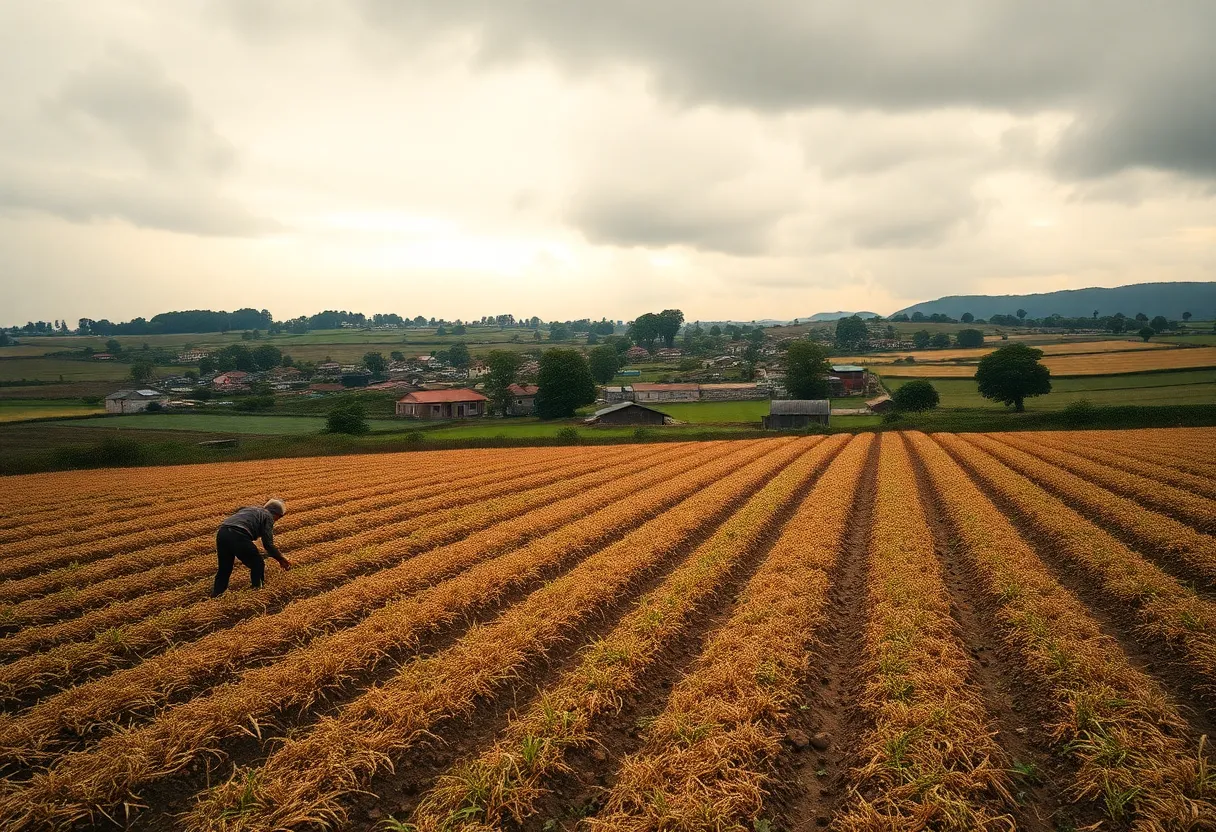News Summary
The Department of Homeland Security has reversed its stance, allowing ICE to target farms, hotels, and restaurants for immigration raids. This change raises concerns among businesses that rely on migrant workers, leading to fears of economic instability in agricultural and hospitality sectors. Local communities are feeling the impact, as reports of increased anxiety and reduced foot traffic emerge amid potential detentions. Activists and community leaders are stepping in to provide support amidst this tense atmosphere, while protests against these immigration policies gain traction.
ICE Policy Shift Hits Agriculture Hard
In a surprising turn of events, the Department of Homeland Security (DHS) has decided that **ICE (Immigration and Customs Enforcement)** will continue its immigration raids not just at businesses, but specifically targeting farms, hotels, and restaurants. This decision marks a reversal from just last week when agents were instructed to steer clear of these locations. It’s stirring up quite the buzz in the farming and hospitality industries, which rely heavily on migrant workers.
Impact on Businesses
Not long ago, farmers and hotel executives could breathe a little easier knowing a temporary exemption was in place. However, that sigh of relief didn’t last long. With a recent directive from the White House, ICE agents were put back on the front lines, poised to enforce immigration laws aggressively. Agency officials shared this news during a call to field offices across the nation. Meanwhile, a note from DHS on Thursday had previously put the brakes on raids in agricultural sectors but was overruled almost immediately.
Pressure from Above
What does this mean for the individuals and businesses involved? Under the renewed directives, there are no longer any safe havens for employers hiring undocumented workers. The White House’s ambitious target to ramp up detentions to an astonishing **3,000 arrests daily** has put a firm grip on how ICE operates. Just last year, arrests were around **2,000 per day**, showing a significant uptick in enforcement measures.
While President Trump has made it clear he prioritizes a crackdown on undocumented individuals, he has also expressed some understanding of farmers’ fears about losing their valuable workforce. However, key figures within the administration, like the Deputy Chief of Staff, are standing firm against giving any exceptions to industries that heavily depend on migrant labor.
Local Reactions and Concerns
The impact of this policy change is already rippling through communities, as local businesses report a decline in sales and foot traffic due to heightened fears of immigration raids. Many residents, especially those from immigrant-heavy neighborhoods, are feeling an increase in anxiety and vigilance as raids become more common.
A recent incident in a nearby town highlighted these fears vividly, with a pregnant woman being detained by ICE, which sparked outrage within the local community. It’s not just about the lives being affected but also the very fabric of local economies—many business owners are now worried about the sustainability of their operations.
Community Responses
With the climate growing more tense, local religious leaders and community advocates are stepping in to support those feeling vulnerable. They are offering not just emotional support but resources that help individuals understand their rights amidst these distressing times. Some community members are even contemplating self-deportation as they weigh the stress and economic strain posed by ongoing raids and arrests.
As fears of immigration enforcement mount, protests against ICE’s intensified actions have emerged. Residents are rallying together, voicing their opposition to the policies that lead to a state of constant unease in their neighborhoods. The message is clear—while enforcement of immigration laws is important, the collateral damage on families and communities is something that can’t be ignored.
What’s Next?
As the dust settles on this sudden policy reversal, the enduring question remains: what will be the long-term impact on agriculture and hospitality across the United States? Only time will tell how these businesses adapt to the new reality and how communities will continue to support their most vulnerable members during these challenging times.
Deeper Dive: News & Info About This Topic
- Washington Post: ICE Policy Shift Hits Agriculture Hard
- Los Angeles Times: Fear Grips Communities Amid ICE Raids
- CNN: The Impact of ICE Raids in Los Angeles
- AP News: Journalist Detained in ICE Raid
- The Guardian: Los Angeles Curfew Lifted Amidst Tensions
- Wikipedia: Immigration and Customs Enforcement
- Google Search: ICE raids
- Google Scholar: Immigration policy
- Encyclopedia Britannica: Immigration
- Google News: Immigration raids

Author: STAFF HERE AUGUSTA WRITER
The AUGUSTA STAFF WRITER represents the experienced team at HEREAugusta.com, your go-to source for actionable local news and information in Augusta, Richmond County, and beyond. Specializing in "news you can use," we cover essential topics like product reviews for personal and business needs, local business directories, politics, real estate trends, neighborhood insights, and state news affecting the area—with deep expertise drawn from years of dedicated reporting and strong community input, including local press releases and business updates. We deliver top reporting on high-value events such as Arts in the Heart Festival, Westobou Festival, and Masters Week. Our coverage extends to key organizations like the Augusta Metro Chamber of Commerce and Greater Augusta Arts Council, plus leading businesses in manufacturing and healthcare that power the local economy such as Textron Specialized Vehicles, Cardinal Health, and Nutrien. As part of the broader HERE network, including HEREAtlanta.com and HERESavannah.com, we provide comprehensive, credible insights into Georgia's dynamic landscape.


